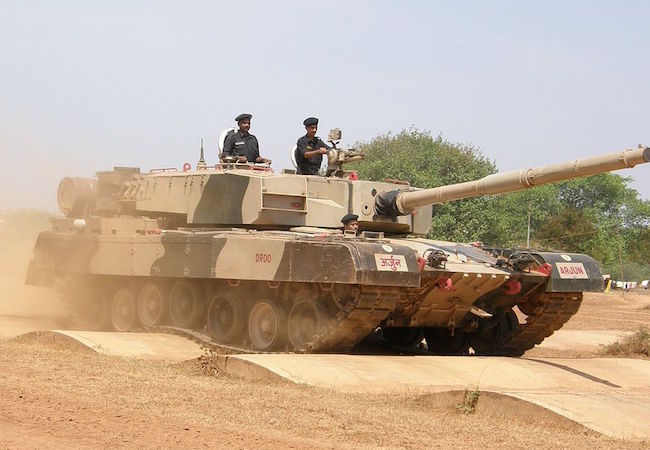
By Asma Khalid
States increase their military expenditures in an attempt to keep military dominance, to maintain a balance of power or a military force sufficient to act as a deterrent against an adversary so that they can secure their National Interest. This military buildup results in an arms race. Same is the case in South Asia: Arms race between India and Pakistan including conventional, nuclear weapons and missile have severe implications on South Asian security environment and poses a serious threat to the stability of the region.
There is an asymmetry between India and Pakistan in conventional military capabilities. India is trying hard to achieve primacy in every kind of military technology. It is constantly working to enhance its conventional and nuclear capabilities both qualitatively and quantitatively which is fueling the arms race between India and Pakistan and also enhancing the strategic instability and security dilemma between both states. In conventional weaponry India is far ahead of Pakistan and it is constantly engaged in improving it massively to promote its agenda of acquiring the super power status. India’s military modernization and its agenda of becoming super power have created a serious situation because Pakistan wants to maintain a rough parity for survival. This fragile situation makes it necessary for Pakistan to review its position and take action consistent with its supreme national interest.
With the changing dynamics of security, now it is imperative that New Delhi and Islamabad should shift their focus from Traditional security to Human security. Because arms race has forever changed the security environment of entire South Asia as well as pose a serious threat to human security. High military expenditures are resulting in fewer budgets for social development. This can result in Economic and social threats including poverty, infectious diseases and environmental degradation. These threats are leading the society to internal conflicts in both states.
It is widely recognized that national security cannot be achieved in a situation where people starve but arms accumulate; where social expenditure falls and military expenditure rises. After the end of cold war the focus changed from military security to human security in most of the countries in western world but third world states could not follow the suit. Military security is the primary focus for policy makers in these states and these states are still lagging behind the developed world. For instance between India and Pakistan one main reason of hostility is their deep rooted distrust in each other which prevent them to cooperate. The result is huge military budgets which further burdened both countries’ economies. But the fact is that after attaining a de facto nuclear powers status both states maintained credible deterrence against each other. Now their focus should be on human development because in present day world most of the conflicts are arising from within states as after the end of cold war world witnessed a total one hundred and ten violent conflicts out of which only seven were state to state.
Both India and Pakistan are facing internal security issues because of deprivations and social injustice. Large armies and nuclear weapons cannot guarantee human security. Human security can only be guaranteed by addressing the root causes of conflicts. To avoid internal conflicts and civil wars India and Pakistan should review their security policies and shift their focus towards Human security. Normalization in relations is required and for this a dialogue process is needed. steps like Confidence building measures can build trust between the two states, reduction of propaganda against each other in the media, Simplification of Visa system, Military leadership interaction to discuss military issues like nuclear and missile deployment, avoidance of arms race, enhancement of the role of SAARC, Encourage mutual beneficial trade and creation of an institution such as a Human Security Council, to consider the nature of regional human security crises and make prompt decisions to resolve them are essential in this regard.
India and Pakistan’s bilateral relations generate a classic military security dilemma involving the spread of military technologies, arms racing and the interplay of national policies for defense and deterrence. All these possibilities create a highly unstable situation for Human development projects. So, it is urgent need of bilateral arms control regime to maintain the stability and peace. The obstacles on the road to arms control regimes can be smooth through different measures including shifting focus from traditional security to human security and by enhancing the role of international community and regional organizations between both states.
Therefore, Pakistan tries to fill the defence production gap through maintaining its credible nuclear deterrence. Additionally, many factors have compelled Pakistan to dependence on conventional and nuclear weapon to maintain its National security. Therefore, India’s increasing defence spending while ignoring the Human Security has been viewed as a factor of instability in region and force Pakistan to increase its nuclear and conventional capabilities.
Asma Khalid is a Research Associate at Strategic Vision Institute, a think-tank based in Islamabad.




